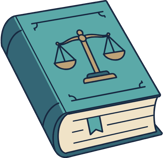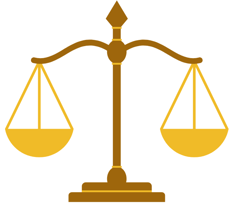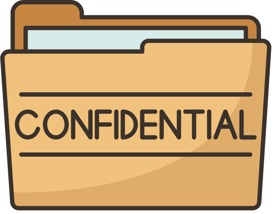Do Energy Healers Need to Keep Client Info Confidential?
October 30th, 2025
5 min read

✏️ Editor’s Note:
If you’re working with clients one-on-one, you probably already treat their information as private. But have you ever wondered if you're legally required to? Or what happens if a court or agency asks you to share something a client told you?In this article, attorney Ian Foster clears up what energy healers are—and aren’t—obligated to keep confidential. You'll learn where ethical promises meet legal boundaries, and how to write a confidentiality policy that protects both you and your clients.
 As healers, we all understand that maintaining client confidentiality is crucial to trusting, productive relationships with the people we are committed to help. After all, if our clients don’t trust us to keep their information confidential, they won’t be open and honest, and in turn we can’t help them on their healing journey.
As healers, we all understand that maintaining client confidentiality is crucial to trusting, productive relationships with the people we are committed to help. After all, if our clients don’t trust us to keep their information confidential, they won’t be open and honest, and in turn we can’t help them on their healing journey.
So it’s only natural to promise our clients – especially those we see one-on-one – that we will keep everything they reveal private and confidential. And, indeed, respecting client privacy absolutely is your ethical obligation as a healer. Yet there are also legal limitations that every healer must understand.
As an attorney who serves energy healers, I’ve seen how obligations to client privacy run up against legal realities. I’ve witnessed healers land in legal hot water when they don’t understand how these issues interact. So let’s take some time to consider our obligations to client privacy as well as the very real legal limitations we must consider.
 Why Client Confidentiality Is Essential for Energy Healers
Why Client Confidentiality Is Essential for Energy Healers
When it comes to client privacy and confidentiality, one of the first questions I often hear is: “What information should I, as a healer, keep confidential?”
My answer is: “Everything.”
Your default attitude should be that everything your client tells you in the context of the healing relationship is confidential. Unless legal exceptions apply (and we’ll get to those below), you simply do not reveal client information to any third parties without your client’s consent.
Preferably you should get the client’s expressed written consent before speaking about the client to anyone, and not rely on verbal consent, which might be misunderstood.
In my mind, this broad definition of client confidentiality extends even to the existence of the healer-client relationship itself. In other words, do not even confirm or deny that someone is your client when asked – unless, of course, you have your client’s written consent to do so.
Look at it this way … a healing journey is an intensely personal and intimate journey, so it’s simply nobody else’s business what your client tells you, or even whether the client is seeing you.
📖Check out EMPA’s blog article: Safe Practice: Embrace HIPAA Compliance
 Limitations to Confidentiality for Healers
Limitations to Confidentiality for Healers
Now that we’ve established the default position of everything being private and confidential, let’s talk about some legal realities.
Have you ever heard of the doctor-patient privilege? Or maybe the attorney-client privilege? I’m sure we all have, even if just from watching courtroom dramas on television.
The law establishes what we call a “legal privilege” to provide an umbrella of confidentiality when engaging the services of certain licensed professionals. The theory is that we want people to have a deep level of trust in their doctors, therapists, and attorneys, so the law requires those professionals to keep things private.
When you come to an attorney like me for legal advice, I am legally required to maintain strict confidentiality; as we say in the law, everything you tell me in the context of obtaining legal advice is “privileged” information.
This privilege is in place so you can be completely honest with me and, in turn, I can give you my best legal advice. I am not allowed to reveal your information to third parties without your consent. More importantly, with few exceptions, I cannot be forced to reveal your information without your consent.
I discuss the notion of “legal privilege” in order to emphasize that there is no similar legal privilege for energy healing.
This means there are circumstances where you can be forced to reveal client information without their consent. There may also be circumstances where you’ll want to reveal client information without their consent.
 When Might You be Forced to Reveal Client Information?
When Might You be Forced to Reveal Client Information?
In general, courts, law enforcement, and other government agencies have broad discretion to require the disclosure of otherwise-confidential client information when they believe the information is relevant to resolving a case or investigation.
Often the initial request will be informal. Then, if you don’t comply, they’ll move to more formal demands and legally enforceable subpoenas. Because there is no legal privilege for energy healers, you cannot refuse to comply. And refusal is a serious offense … refusing a lawful government demand for information may subject you to fines or charges of contempt or obstruction.
 When Might You Want to Reveal Client Information?
When Might You Want to Reveal Client Information?
Let’s imagine your client says something which gives you a reasonable belief that they are about to hurt themselves or hurt someone else. In order to stop the harm, you might decide to call the client’s family or even the authorities in serious cases.
Intervening to stop a client from hurting themselves or another person is, technically, a violation of client confidentiality. But you might want the option of intervening so you can perhaps save a life.
Or imagine the client makes statements which give you a reasonable suspicion that they’re about to commit a crime, like say robbing a convenience store. Again, you might want the option of intervening to stop them from doing something destructive.
You may or may not choose to intervene when the client gives you reason to believe they’re about to do something harmful or destructive. But having the option is better than not. After all, you’re the one who must live with the consequences if you had the power to stop real-life harm and chose not to do so.
I understand this can be a heavy subject to think about, so here’s the good news: if you properly draft the confidentiality portion of your consent forms, you can protect yourself legally, keep your options open in case you want to prevent real-world harm, and encourage your clients to decide what they disclose to you.
 How to Write a Confidentiality Clause
How to Write a Confidentiality Clause
How do you craft that portion of your consent forms?
First, spell out your default position on privacy. Make it clear to your clients that you value their privacy and you want them to trust you. Tell them your general rule is to keep everything confidential and not to reveal information to third parties without their written consent.
Second, make it clear there are circumstances where the general rule on privacy may not apply. I typically recommend listing common privacy exceptions so the client knows exactly what you’re talking about.
Include things like court orders, government investigations, reporting child or elder abuse, stopping a client from harming themselves or others, and reporting potential crimes.
That way, when you’re served with a court order for client information, you can fulfill your legal obligation to the government without violating your contractual obligation to your client. Or when you see the opportunity to stop real-world harm, you have the option of doing so without getting sued for violating client privacy.
 What’s Next: Protect Your Practice With a Confidentiality Policy
What’s Next: Protect Your Practice With a Confidentiality Policy
A properly drafted confidentiality policy protects your healing practice, keeps you out of legal trouble, promotes trust with clients, and empowers clients to decide for themselves what to reveal.
✏️ Editor’s Note:
You now have a clearer understanding of when client confidentiality applies—and when it doesn’t.This can be a tough topic, especially when your desire to protect client privacy meets situations where the law requires disclosure. But with the right language in your consent forms and confidentiality policy, you can stay protected while still honoring the trust your clients place in you.
Protect your practice with confidence. EMPA offers professional liability coverage designed specifically for energy healers and holistic practitioners—backed by a professional association that understands your unique needs.
➡️Explore coverage options here! ⬅️And, if you haven’t reviewed your confidentiality policy lately, (or don’t have one), this is the moment to put that in place.
-1.png?width=174&height=138&name=Learn%20more%20about%20energy%20magazine%20(1)-1.png) This article was originally published in the May/June 2023 issue of Energy Magazine. As part of the ongoing Laws & Regulations column by Ian Foster, these articles aim to help energy healers navigate legal, ethical, and business challenges with clarity and confidence.
This article was originally published in the May/June 2023 issue of Energy Magazine. As part of the ongoing Laws & Regulations column by Ian Foster, these articles aim to help energy healers navigate legal, ethical, and business challenges with clarity and confidence.
Disclaimer: This article is for educational purposes only and does not provide legal, financial, or medical advice. The examples are general, and coverage may vary by policy. Always refer to your insurance provider or policy language for specific details, as the policy terms take precedence. For legal concerns related to your practice, consult an attorney.
Ian Foster is an attorney with over 20 years’ experience. Ian is passing on his “inside knowledge” from years of government service, breaking it down into understandable pieces, so you can build a long-lasting business with peace of mind and make a real difference in your clients’ lives
Topics:

.png?width=1326&height=405&name=EMPALogo_final_white-01%20(1).png)










